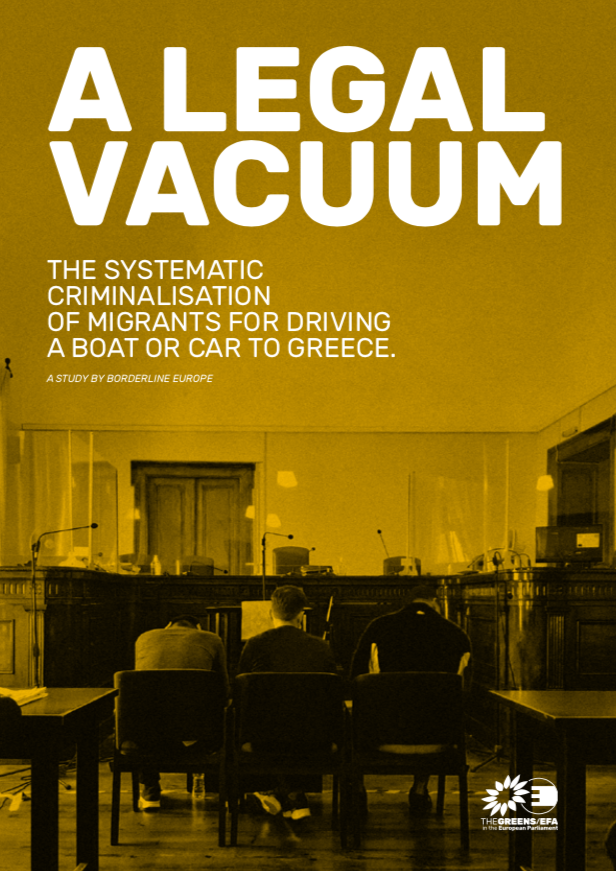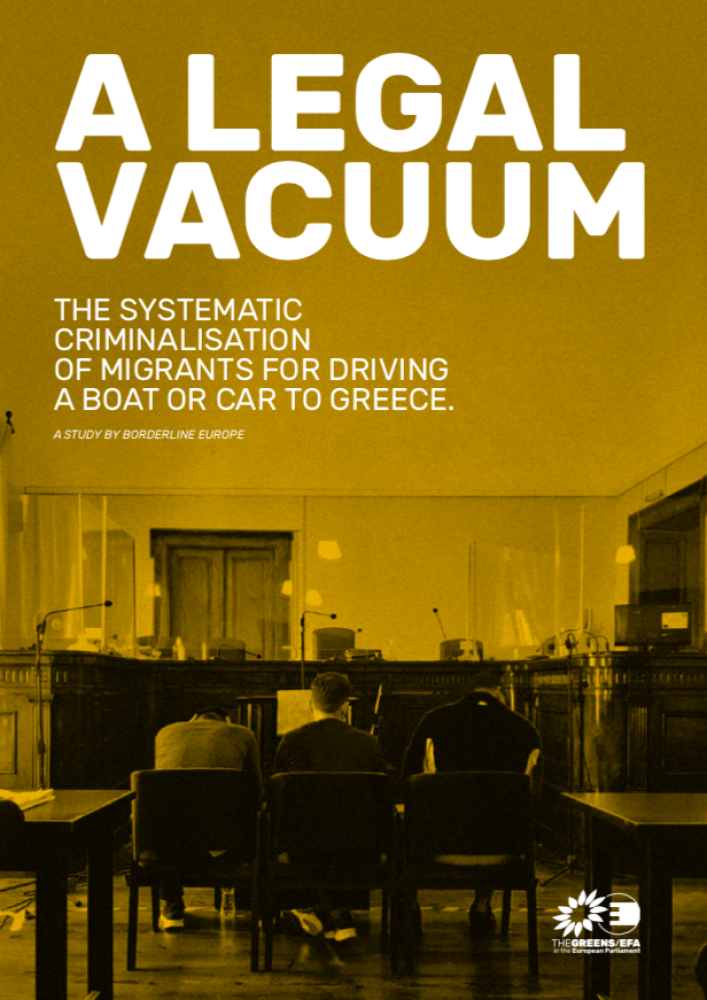Study: A legal vacuum - the systematic criminalisation of migrants for driving a boat or car to Greece
The study is also available in Greek and German.
The fight against migrant smuggling has been a top priority of European migration policy since 2015, with a vast amount of resources being invested into this policy goal. This study gives new and in-depth insights about the criminalisation of people on the move for "smuggling" in Greece, analysing the current legal framework as well as its practical enforcement. It shows that instead of protecting the rights of smuggled migrants and asylum seekers, these policies criminalise them and expose them to long prison sentences with the accusation of smuggling, all simply for having crossed the border by boat or car.
This is made possible both by the legal framework set up in Greece and the EU, which is formulated very broadly, and further reinforced by an implementation that is characterised by gross rights violations such as arbitrary arrests, torture, abuse, coercion, and lack of access to legal support and interpretation.
Individuals are typically arrested immediately upon arrival, held in pre-trial detention for months, and have very limited options to defend themselves and access support. The trials that tackle these accusations are very short and flout basic standards of fairness.
The report examines a total of 81 trials of 95 people who were arrested and tried in Greece for smuggling in eight different locations, namely in Komotini, Thessaloniki, Rhodes, Samos, Lesvos, Crete, Syros and Kalamata. The findings are alarming:
Main findings
-
Arresting boat / car drivers or other individuals on board for the offence of smuggling is a routine practice by law enforcement, with little regard for the actual involvement or intention of the accused;
-
Smuggled people themselves, including asylum seekers, are systematically convicted of smuggling because they (allegedly) drove or assisted in driving the boat or car;
-
At least 1374 people were arrested for smuggling in 2022;
-
Arrests and preliminary investigations are riddled with gross human rights violations; including arbitrary arrests, violence and coercion, little to no access to interpretation or legal support as well as problems in accessing the asylum procedure during detention;
-
84% of the cases are subjected to pre-trial detention, lasting an average of 8 months. As of February 28, 2023 there are 634 people in pre-trial detention for smuggling.
-
Judgements are issued on the basis of limited and questionable evidence, such as the testimony of a single police or coast guard officer; the police or coast guard officers who provided the testimony on which the indictments were based did not appear in 68% of all documented cases to be cross-examined;
-
On average, trials last for 37 minutes, which drops to 17 minutes in trials with state-appointed lawyers; the shortest trial we documented lasted 6 minutes;
-
Trials lead to an average prison sentence of 46 years and a fine of 332.209 Euros;
-
52% of all convicted people are serving a prison sentence of 15 years to life;
-
As of February 28, 2023 there are 2154 people who are detained in Greek prisons with the accusation of smuggling (which remains the second largest group per crime); nearly 90% of them are third-country nationals (1897).
Thursday, 06 July 2023




